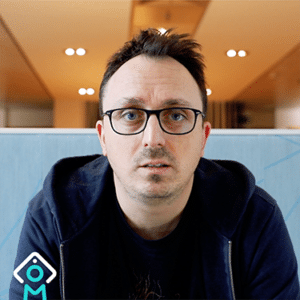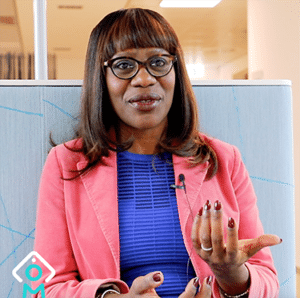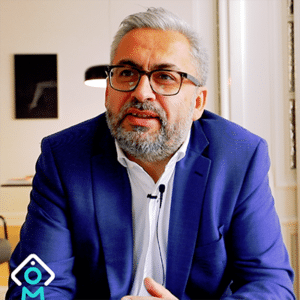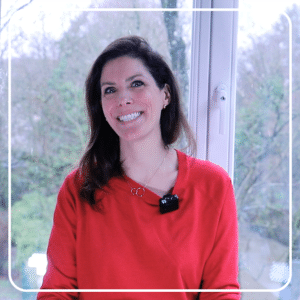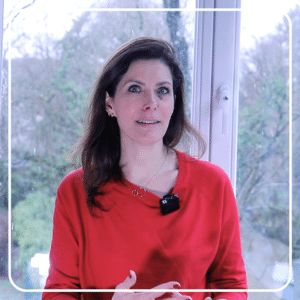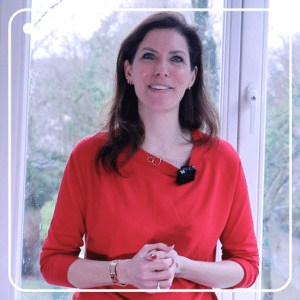Itinerary of an entrepreneur: 6 ideas and as many lessons
In this Meet an entrepreneur video, Solenne Niedercorn-Desouches, Non-Executive Director and Senior Advisor in FinTech/VC and podcast host, explains how she learned from each experience, to lead to a niche, profitable and fulfilling activity:
Intrapreneurship as an employee
First company
Mindset change
Concept testing
Successive iterations
Second company
Back to salaried status
Towards independence
Discover all our entrepreneur videos and our expert articles on meetanentrepreneur.lu.
You liked this content?Share it now!
Bookworm? Read the transcript!
Transcription de l'intervention de Solenne Niedercorn-Desouches
You see, I could have ran with the idea and thought “I’m going to create this app, it’s going to be amazing!”. But I wouldn’t have confronted it to the market and I would have been frustrated.
Itinerary of an entrepreneur: 6 ideas and as many lessons
Solenne Niedercorn-Desouches
Non-Executive Director and Senior Advisor in FinTech/VC, podcast host
Intrapreneurship as an employee
I’ve always been part of young teams implementing a lot of things: new services, new products, new entities, etc. So, all in all, even though I was working in big groups at the start of my career, I’ve always been tasked with introducing a new offer, a new type of customer to develop. In my second job, in Luxemburg, I was the “number one” employee for four months! So, for four months I was all alone and I was in charge of everything! Admin, legal stuff, general services…
First company
I launched a company in 2015, right after the birth of my fourth daughter. The idea was to create a platform that would allow you to book doctor’s appointments. At that time, there weren’t any. Well, Doctena was just starting off, but we didn’t have all the other platforms we have today. So, that’s how it started. I created the company. For a year, I iterated on that product, I tested lots of things. I’m saying “I”, but it was actually my husband and I. He was in charge of the CTO aspect, and I took care of the CEO part in order to develop this platform, which we ended up creating. And this way, we were able to test the market needs. Ultimately, there was no market fit validation, and this is when I encountered nyuko, which supported entrepreneurs in the creation of start-ups.
Mindset change
What happened was a great thing because it gave me the opportunity to shift from a banker mindset to a startup entrepreneur mindset. Little by little, the veil was being torn apart and I was realizing that there were so many subjects I wasn’t familiar with. Like, I don’t know… growth hacking, inbound marketing, SEO… I didn’t know any of these terms, at all. And so, basically, nyuko helped me learn a lot of things.
Concept testing
When I arrived at nyuko, I pitched a project: an app that allows you to book a shower stall after your run. Because I do run a lot! And the truth is you can’t always shower at work. The idea was to establish partnerships with sports clubs, where we would act as business providers, in order to allow people to use the club’s showers. Whenever you’re getting started on a concept, you’re told that if you want to validate market demand, you need to interview prospective customers. So, I went through this whole interview phase. I met a lot of different stakeholders, runners, I visited a lot of gyms… Eventually, I realized there was no real market need for this concept. So, you see, I could have ran with the idea and thought “I’m going to create this app, it’s going to be amazing!”. But I wouldn’t have confronted it to the market and I would have been frustrated. So, I avoided developing this project for nothing. I had ran a POC, it was very rudimentary, but it allowed me to test.
Successive iterations
Then I started thinking of developing an app to find running buddies, or people to play tennis with, because you don’t always know someone who plays tennis, at least at your level. So, there you go, I ran a new series of interviews again! I spent hundreds of hours interviewing people I had never met before to, in the end, not launching it!
Second company
Finally, maybe 6 or 9 months after that, I… Well, there was an obvious need for a platform to sell and buy second-hand items in Luxemburg. So, I launched “My braderie”, which was a website where people could post ads, a bit like Craigslist in the US. And so, I launched this project, thinking I was going to develop this product. But, once again, I realized, because it wasn’t taking off that much and that, that I lacked a lot of key knowledge. For instance, I had hired a developer in India for the dev part, and it was… suboptimal. So, I thought that the best way to understand how these things work was to become part of a startup.
Back to salaried status
I was hired as the “number one” employee, once again, in a startup that was in the process of creating a product from scratch once again: a new entity was being created and no one was working on it yet except for the CEO. I started working on developing this product as a product manager. And then again, this experience helped me come down to Earth and realize that there are many things you need to grasp when you’re creating a tech product, not a POC or an MVP, but something that you need to develop for a client in the next 6 to 12 months. I worked in that startup for two years, and it was a very formative experience for me. I learned, for instance, to make queries for developers. I learned how the product worked. I think I really learned all the basic stuff you need to know when you’re launching a tech company. And at the same time, I was able to use all the regulatory knowledge I had gained working at the bank, so it was the perfect fit.
Towards independence
When I left the startup after two years, I knew that I had really gained competence on the tech, product, market and ecosystem aspects. What’s more, I was able to incorporate that in my overall professional development. At that point, I thought “What do I do now?” I had never tried self-employment… Why not do it now? And so, here I am again! I embarked on this new adventure with zero clients and no company since I had liquidated mine in the meantime. And a blank roadmap. What should I do? I thought I could bring added value to clients through accompanying them in the development of tech products in a complex regulatory framework. So, that’s what I’ve been doing for three years: I assist start-ups and scale-ups which are new on the market and aren’t familiar with the European regulatory framework with my top-notch knowledge of ecosystems… So the way you build tech products in these ecosystems.
More testimonies of local entrepreneurs on meetanentrepreneur.lu
